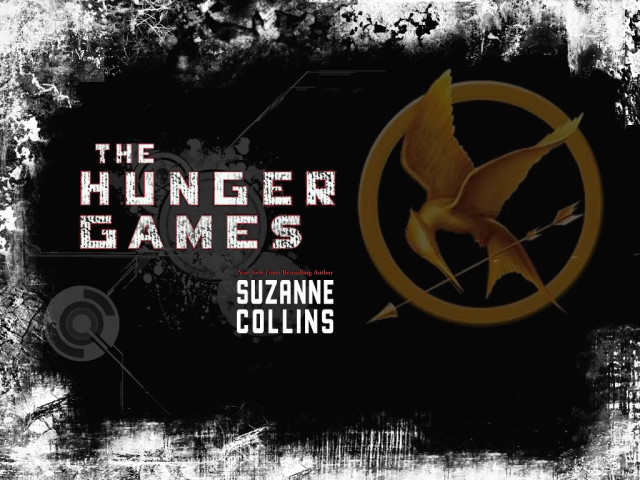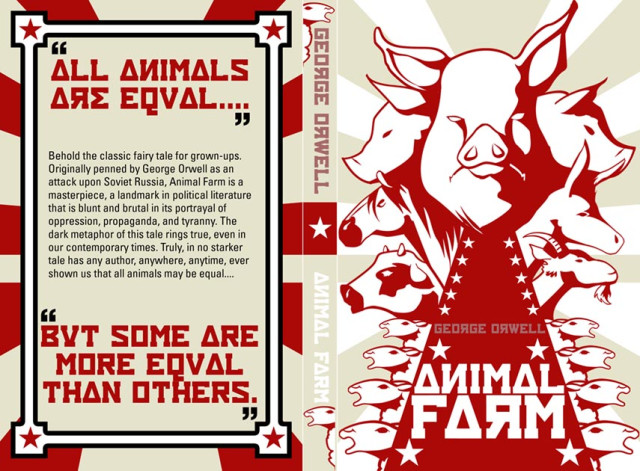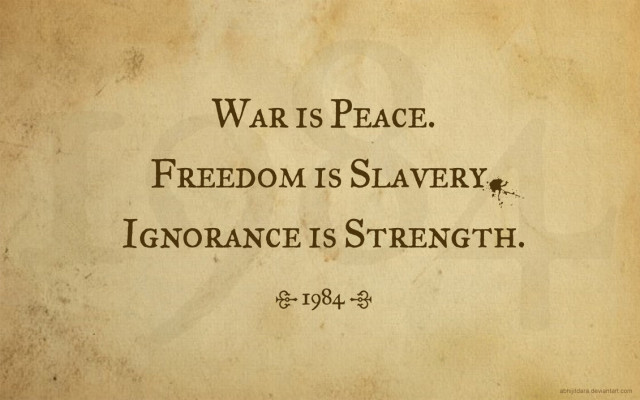By Riya Kuruvilla
If we lived in a dystopian world, you wouldn’t be reading this. Fortunately, it isn’t and we can talk about dystopian literature all we want without worrying about ‘Big Brother’ watching and eventually ‘vaporizing’ us. To my embarrassment, I realised a little late that dystopian particularly refers to an imagined place – so in all technicality, even if our world checked each and every other thing on the “how to qualify as dystopian” list, it wouldn’t pass. Other things on the list would include an oppressive world regime and collapse of the eco system as we know it. Adding ‘A protagonist that somehow ends up joining or leading the rebellion’ would make this a list for dystopian literature. This literature spans the more contemporary likes of The Hunger Game Trilogy by Suzanne Collins, the yet to be completed Pure Trilogy by Julianne Baggot and The Divergent Trilogy by Veronica Roth . It includes classics such as 1984 and Animal farm by George Orwell, Mary Shelley’s The Last Man and William Golding’s The Lord of the Flies.
Why read about something so dark, depressing and hopeless? Schadenfreude, I guess! It’s entertaining as long as you aren’t experiencing it. The Hunger Games is set in the fictional post nuclear attack city, Panem, the only known surviving civilization in the world. Inspired by the Greek myth of Theseus, the trilogy centres around an annual event called “The Hunger Games” in which two representatives (teenagers) from each of the 12 districts of Panem compete to death. One Kid emerges victorious, earning increased rations from the autocratic ‘Capitol’ for his or her respective district. Katniss Everdeen is the girl who changes it all, revolutionary in terms of how she voluntarily replaced her sister when representatives were being chosen from her district, and consequently changes the course of history in the games. It is a story that exemplifies the idea that loss is a prerequisite for glory related to the achievement of lofty ideals.
1984 by George Orwell, published in 1949, makes the Hunger Games look like a happy affair. A five star dystopian rating, if we were to go by levels of hopelessness. Winston Smith is ridden by routine in the nation of Oceania, where Big Brother watches everyone’s every move and propaganda is taken to a whole new plane. Surveillance is so advanced, not only are people’s words and actions monitored, but even thought police exist for psychological monitoring. Any forms of individuality are suppressed and dissent in the most microscopic way is erased; History is altered in the Truth Ministry to suit the party’s wishes, and is where Smith works. Winston’s borderline rebellious thoughts bloom along with an affair in the most unlikely of places, as Winston meets Julia, a fellow party worker. This awkward romance of sorts ends most dismally with the both of them betraying each other and their painstaking effort at rebelling against Big Brother, the leader of the forever ruling party.
Dystopia is definitely not a prediction of the future, though it does hint at our tendency to not be able to truly identify what we are controlled by. We’re either suppressed by fear or routinised into inaction. Such literature allows us to hold on to hope, and as is in the case of Orwell, our utter helplessness.





































